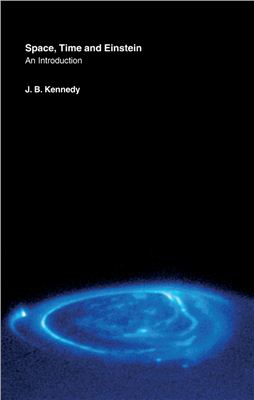Acumen Publishing, 2003, 244 pages
This introduction to one of the liveliest and most popular fields in philosophy is written specifically for a beginning readership with no background in philosophy or science. Step-by-step analyses of the key arguments are provided and the philosophical heart of the issues is revealed without recourse to jargon, maths, or logical formulas. The book introduces Einstein's revolutionary ideas in a clear and simple way, along with the concepts and arguments of philosophers, both ancient and mode that have proved of lasting value. Specifically, the theories of the ancient Greek philosophers, Zeno, Euclid and Parmenides are considered alongside the ideas of Newton, Leibniz and Kant as well as the giants of twentieth-century physics, Einstein and Lorentz. The problems at the heart of the philosophy of space and time, such as change, motion, infinity, shape, and inflation, are examined and the seismic impact made by relativity theory and quantum theory is assessed in the light of the latest research. The writing is lucid and entertaining, allowing a beginning readership to grasp some difficult concepts while offering the more experienced reader a succinct and illuminating presentation of the state of the debate. Space, Time and Einstein shows the reader the excitement of scientific discovery and the beauty of theory in the search for answers to these fundamental questions.
This introduction to one of the liveliest and most popular fields in philosophy is written specifically for a beginning readership with no background in philosophy or science. Step-by-step analyses of the key arguments are provided and the philosophical heart of the issues is revealed without recourse to jargon, maths, or logical formulas. The book introduces Einstein's revolutionary ideas in a clear and simple way, along with the concepts and arguments of philosophers, both ancient and mode that have proved of lasting value. Specifically, the theories of the ancient Greek philosophers, Zeno, Euclid and Parmenides are considered alongside the ideas of Newton, Leibniz and Kant as well as the giants of twentieth-century physics, Einstein and Lorentz. The problems at the heart of the philosophy of space and time, such as change, motion, infinity, shape, and inflation, are examined and the seismic impact made by relativity theory and quantum theory is assessed in the light of the latest research. The writing is lucid and entertaining, allowing a beginning readership to grasp some difficult concepts while offering the more experienced reader a succinct and illuminating presentation of the state of the debate. Space, Time and Einstein shows the reader the excitement of scientific discovery and the beauty of theory in the search for answers to these fundamental questions.

